Today, we’re stepping into our unbothered girl era!
If you’re someone who often feels the need to have constant validation from others in order to feel worthy and complete, then this post is just for you. All the symptoms I mentioned earlier come from beliefs and thoughts rooted in the mindset of lack and desperation. This creates emotional attachment which is both unhealthy and unattractive.
If you think emotionally detaching is hard, unnecessary, and even toxic, then this post will help you gain the right view of what true emotional detachment is. I’ll show you how embracing detachment can only elevate you, enhance your sense of security, and empower you to reclaim control over your emotions.
Emotionally detachment is not rocket science; it’s something you can do and master! So this post will be all you ever need to know about how to be emotionally detached.

How to be emotionally detached
What is emotional detachment?
As humans, we’re placed on this Earth to encounter various aspects of life – both good things and bad things. For me, emotional detachment means having the ability to experience all kind of feelings without allowing those feelings to control you.
For instance, if something unfavorable happens, you won’t allow it to shape your identity or haunt you forever. Every experience should serve as a lesson. Allowing something happened in the past to bother you or lead you to believe you’re not good enough is a form of emotional attachment.
Similarly, when something amazing happens, it’s key to just be thankful and enjoy every little moment right now. Instead of holding on too tight or expecting certain results, you can truly soak up and fully embrace all the good things in your life.

Emotional detachment means you can fully appreciate and enjoy the good things in your life while still understanding that if one day they were to disappear, you would still be alright.
Is emotional detachment toxic or harmful in any way?
Emotional detachment itself is not inherently toxic or harmful; in fact, it can be beneficial for both you and those around you. Many mistakenly equate emotional detachment with “emotional numbing,” believing it means being unable to feel emotions or enjoy life. However, emotional detachment is about establishing and maintaining boundaries to safeguard our mental well-being. We don’t need to detach from everything or everyone unless they bring harm into our lives.
Emotional detachment becomes problematic only when applied universally, leading to complete isolation from others or avoiding any exposure to challenges and opportunities in life. When you protect yourself too much, you simply can’t grow.
Some people think emotional detachment means suppressing emotions because suppressing them doesn’t make them disappear; as it merely hides emotions deep within, resurfacing with greater intensity later on. Therefore, understanding the true essence of emotional detachment is crucial. Extremes, such as using it to evade important emotions or suppress feelings, can impede personal growth and hinder the resolution of underlying issues.
Therefore, it is essential to learn to know when and why we have to detach from from specific situations or individuals.
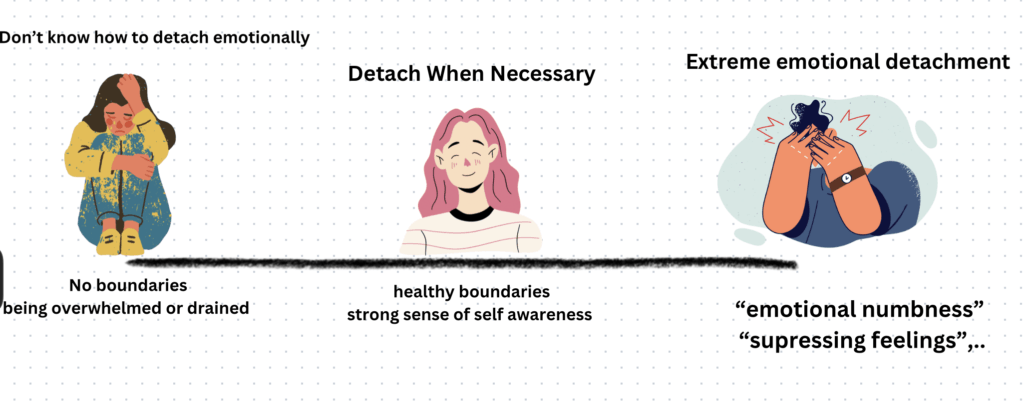
How to be emotionally detached
Why do we attach from the first place?
To understand how to be emotionally detached, I think we first need to learn where the attachment comes from.
Have you ever wondered why we develop emotional attachment towards people or things?
Do you think we create attachment to form stronger connections in our relationships?
Take a moment to reflect on this.
The answer is: No.

Rather attachment often arise from a need for something or someone to fill a void within us, a belief that we can’t fulfill it on our own. Seeking external validations and relying on others’ opinions becomes essential for us to feel truly adequate. Without love and approval from others, we may struggle to believe that we deserve love.
These attachments often stem from events in our past or childhood experiences. It could be mistreatment by our parents or events that led us to believe we are not good enough (such as parental divorces, school bullying, or lack of parental care). This experience makes us feel the need to constantly prove ourselves or generate consistent results to feel deserving of love.
As a result, we may later find ourselves easily placing our self-worth not on our own inner value but on external factors like relationships, people, careers, or social status.
However, the truth is that we possess the power to fulfill our own external needs—validation, love, appreciation. Naturally, we are always enough and lovable.
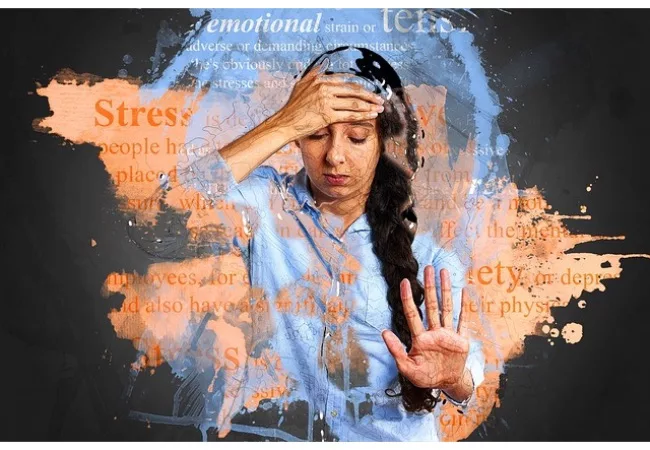
Your own personal value is what matters.
The solution lies in constructing a personal set of values.
You, more than anyone else, should comprehend the source of your value and recognize that only you possess the ability to evaluate yourself. Others may offer opinions, but they can’t truly understand you as you do.
Your set of values should be self-defined and self-judged, not influenced by external forces. This way, even if external factors vanish or change over time (and they will, as nothing remains constant forever), you will maintain a clear understanding of your identity and worth.
For instance, if I define myself as a person who embodies kindness, continuous self-improvement, hard work, and accountability, it’s alright if my current achievements fall short of my career goals, if my monthly earnings aren’t substantial, if I lack a romantic relationship, or maybe in my 30s and I still don’t know where I’m heading in my life, it is still okay.
Those things do not have anything to do with my worth as a person. As long as I continue to be kind and put in my best effort in all endeavors, my self-worth remains intact.
Your personal value builds your self-esteem
Your personal value also contributes to your self-esteem. You might not be aware that self-esteem plays a significant role in any relationship you have in life. Self-esteem not only shapes our thoughts but also influences how much love we can receive and how we treat others, especially in close relationships.
According to a study by Lavner, J. A., Bradbury, T. N., & Karney, B. R. (2012) titled “Incremental change or initial differences? Testing two models of marital deterioration” published in the Journal of Family Psychology, even though happiness tends to decline in couples, the steepest decline is observed in people whose self-esteem was lower to begin with. If you can sustain your relationship better, there is a lower chance you’ll get hurt or cross limits, which can also prevent excessive attachment to a specific person or a relationship.

Build a life for yourself
Engaging in hobbies, cultivating passions, and setting meaningful goals can serve as effective strategies to foster emotional detachment.
When you immerse yourself in activities that you are genuinely passionate about, you divert your focus from seeking validation or worth from external sources. Instead, your attention shifts to personal growth, accomplishment, and the joy derived from your pursuits.
A study from Japan called “Relationship of Having Hobbies and a Purpose in Life With Mortality, Activities of Daily Living, and Instrumental Activities of Daily Living Among Community-Dwelling Elderly Adults” by Kimiko Tomioka, Norio Kurumatani, and Hiroshi Hosoi tested on the correlation between having hobbies and a purpose in life (PIL; in Japanese, ikigai) with mortality and a decline in the activities of daily living in Shimoichi Town in Nara Prefecture, a rural Japanese town with an approximate population of 6900 residents.
The question that the research team asked the participants was ““Do you have any hobbies?” or ” “Do you have ikigai?’’ directly translated as ‘‘Do you have a reason for living?’’.
The people in the study were divided into four groups based on how they answered two questions. These groups are: those with both hobbies and PIL, those with only hobbies (meaning they have hobbies but not PIL), those with only PIL (meaning they have PIL but not hobbies), and those with neither hobbies nor PIL
And the findings was very interesting. People who didn’t have hobbies or PIL were more likely to be older, deal with depression, have a lower income, abnormal BMI, moderate drinking habits, a recent history of stroke, and poorer cognitive function compared to those who had both hobbies and PIL. Additionally, the research also suggests that not having hobbies might be more closely connected to the risk of death and decline in daily functioning than not having a purpose in life (wow).
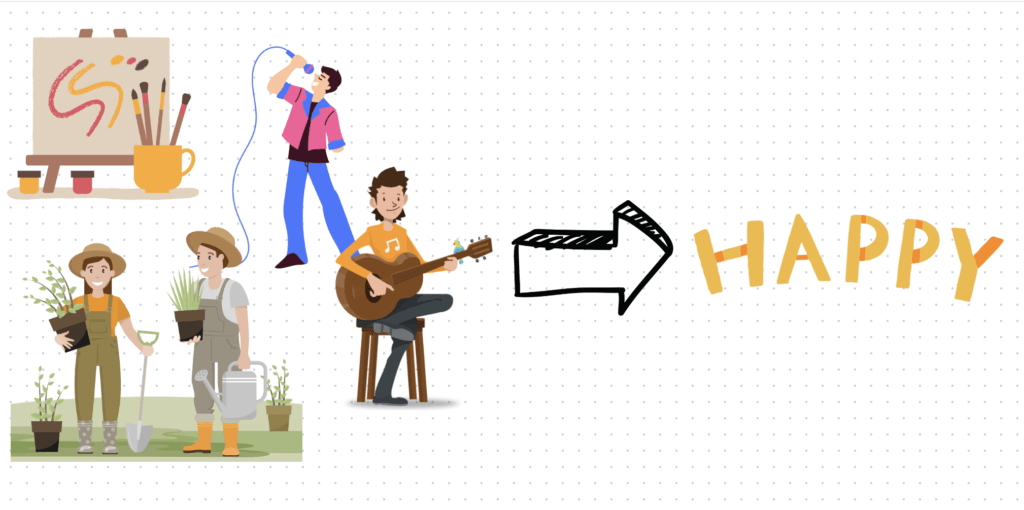
After reading this study, I came to realize one thing: most of what we do or are forced to do is for our future rather than our present. That’s why many of us find it difficult to be happy and to love ourselves.
So, I hope you start picking a hobby for yourself from today. If you love painting, then spend a little time each day on it. Don’t ever think this time is just for wasting; hey, it indeed makes you live longer and function more productively according to research.
For me, I always love painting (although the quality of my paintings is controversial, lol). But every time I grab a paintbrush and start creating, it’s like stepping into a world where your emotions and creativity just flow. This hobby easily makes me feel fulfilled and satisfied, which work often does not bring.

And yes, anything you are passionate about will definitely make you busy, and you just won’t have much time or energy left to care or attach to something else.
In essence, hobbies, passions, and goals become channels through which you develop a stronger sense of self. And the joy from within ( which you can absolutely create for yourself ) is the most lasting joy and happiness among all.
Understanding the role of ego
Sometimes we tend to put others on a pedestal and idealize them, especially when we’re infatuated with the idea of who they are. This can happen because of our ego, that part of us that wants to feel special or connected to someone extraordinary. But the truth is, it’s not healthy for you.
After a relationship ends, if you find yourself obsessing over that person, it doesn’t necessarily show how deep your love was. Instead, it might indicate that you struggle to be on your own. It’s not a sign of love’s depth; it’s more about your ability to be self-sufficient.

You should be enough by yourself, and everyone who comes in should only bring extra value, like an add-on to your life.
The idea of not being able to live alone by yourself can come from different places—perhaps past experiences or insecurities. But understanding that this tendency doesn’t define your love’s depth can help you grow emotionally and create healthier relationships in the future.
Eliminate the mindset of lack
Shifting away from the mindset of lack can significantly aid in achieving emotional detachment.
When you genuinely believe you can achieve whatever you want and you totally deserve all the good stuff life offers, you don’t cling so tightly to how things turn out
Think about getting on board with the idea that the universe has your back and things will eventually work out for you.
With this attitude, you don’t feel the need to micro-manage situations or people to make them go a certain way. Instead, you find a sort of peace in letting things happen naturally, trusting that your own skills and the universe’s vibes will guide your journey.

This fresh way of seeing things helps you let go of the fear of not knowing what’s coming and how things will turn out. You get that setbacks and challenges are just part of the deal, and even if stuff doesn’t go as planned, you’ve got what it takes to roll with the punches and keep going.
Stay grounded in the present
The last thing of my list of how to be emotionally detached is my favourite one.
Our minds have a tendency to dwell in the past or race into the future, creating illusions that can mess with our emotions. But the real deal is that all we ever truly have is the present moment.
When you’re totally focused on what’s happening right now, it’s a lot harder for your emotions to run wild based on past experiences or future worries. You’re not getting tangled up in thoughts like, “What if this happens again?” or “What if I mess up in the future?” Instead, you’re tuning in to what’s actually happening around you.
It’s like letting go of a bunch of heavy bags. You’re not carrying around the weight of yesterday’s stuff or the worries of tomorrow. You’re just enjoying what’s happening right now, and that’s pretty liberating.

So, when you’re all about living in the present, you’re less likely to get overly attached or hung up on things. You’re detaching from the emotional baggage of the past and the uncertainties of the future. You’re embracing the freedom to experience life without all those extra layers of emotion, which can help you navigate situations with more clarity and ease.
Final words – how to be emotionally detached
I hope I helped you with some understanding about how to be emotionally detached. Emotional detachment is a journey that involves letting go of the need for external validation, staying grounded in the present, and fostering self-sufficiency.
By shifting your mindset away from a scarcity mentality and realizing that you have the power to create your own worth, you’re on the path to greater emotional resilience. As you develop these practices, you’ll find that emotional detachment can empower you to navigate relationships, challenges, and uncertainties with a newfound sense of clarity and strength.
Feel free to share your thoughts on this topic in the comments below! I’d love to hear your perspective and any tips you might have on how to achieve emotional detachment.



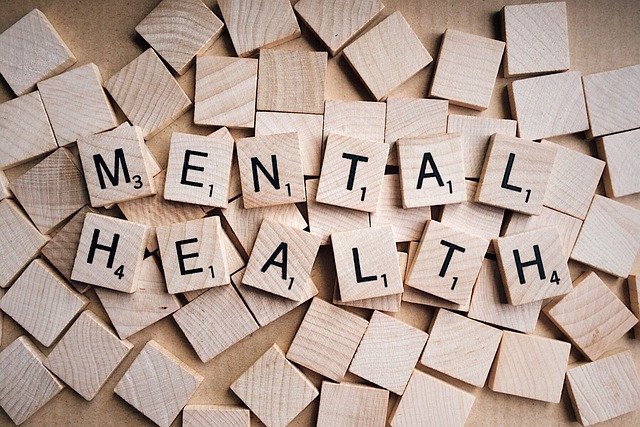
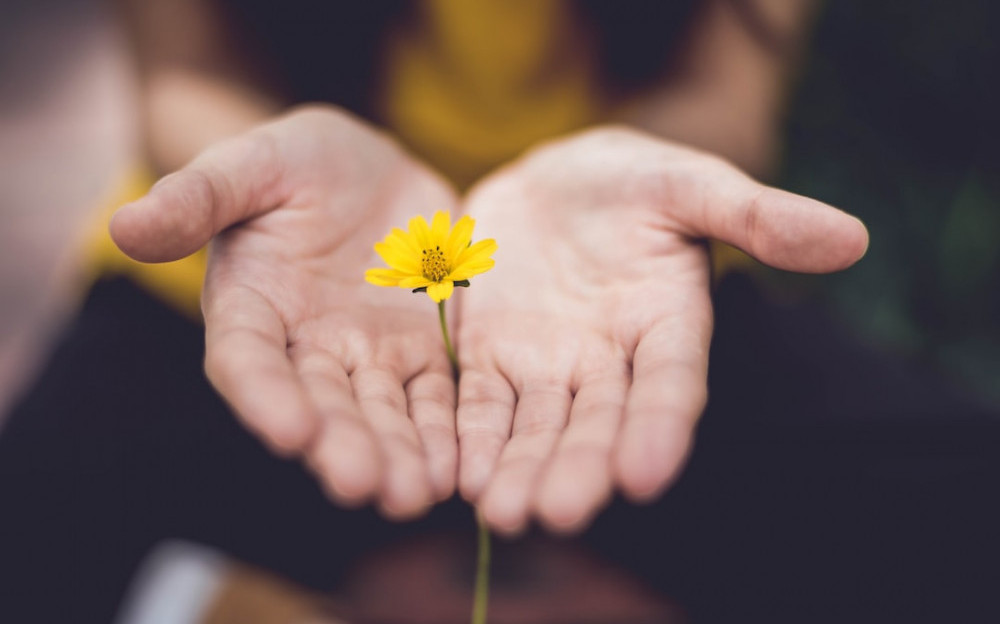

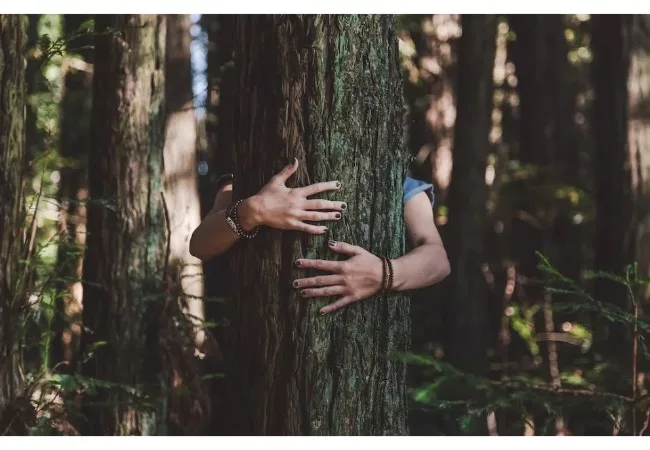
Lily,
This article is so helpful for those of us with emotional attachment disorders. I have always denied being emotionally attached, but I definitely have my moments. Until I read your article I honestly did not realize just how severe in some cases. My worst is when someone critiques me, and it is regardless of the situation.
Last week at work, I was critiqued a little unfairly in my opinion, and for some reason I just let it eat a hole in me. I know I do my job very well, and I should not have let one little evaluation unsettle me as I did. I went as far as to take that work emotional baggage attachment home and let it bother me even more.
When I began reading your article, I let it slip away, finally since Tuesday last week I let this evaluation go.
I stepped into a new career about a year and a half ago. I was a chef for 25 years, and moved to the desert. Well, cooking was out the window after suffering for 2 years in a hot kitchen. Now I am a customer service representative in a call center. I have had no bad evaluations since starting and really took that one over the top with my feelings on the matter.
I am bookmarking this article so I can revisit it from time to time. Reassurance never hurts. Thank you so much for this article.
Stacie
Hi Stacie,
I’m really touched to hear that you found the article helpful and that it resonated with your experiences. Emotional attachment can be quite subtle, and sometimes we don’t even realize its extent until it starts affecting us.
Your journey from being a chef to a customer service representative is significant, and adjusting to a new career can bring its own set of challenges. I’m glad to hear that reading the article helped you release that emotional baggage and let go of that evaluation.
Thank you for sharing your experience, and I wish you all the best on your journey of self-discovery and emotional well-being! 😊
This is a very helpful post on emotional detachment and how one can achieve it. When needing to get rid of physical belongings, I often refer to the fact that I must cut the umbilical cord with it. And sometimes it is really hard, but it does give me a sense of achievement, and liberation, when I am emotionally detached.
It can be too easy to live in the past and stay emotionally attached. I will be sharing this guide with my sister who has several emotionally attachment problems. Thank you for sharing this great resource.
You’re very welcome! I’m glad to hear that you found the post on emotional detachment helpful, and it’s wonderful that you’ve found a practical way to apply it to decluttering physical belongings.
If you or your sister ever have more questions or need further guidance on this topic, please feel free to reach out. Wishing you both success on your journeys toward emotional detachment and a more fulfilling present and future!